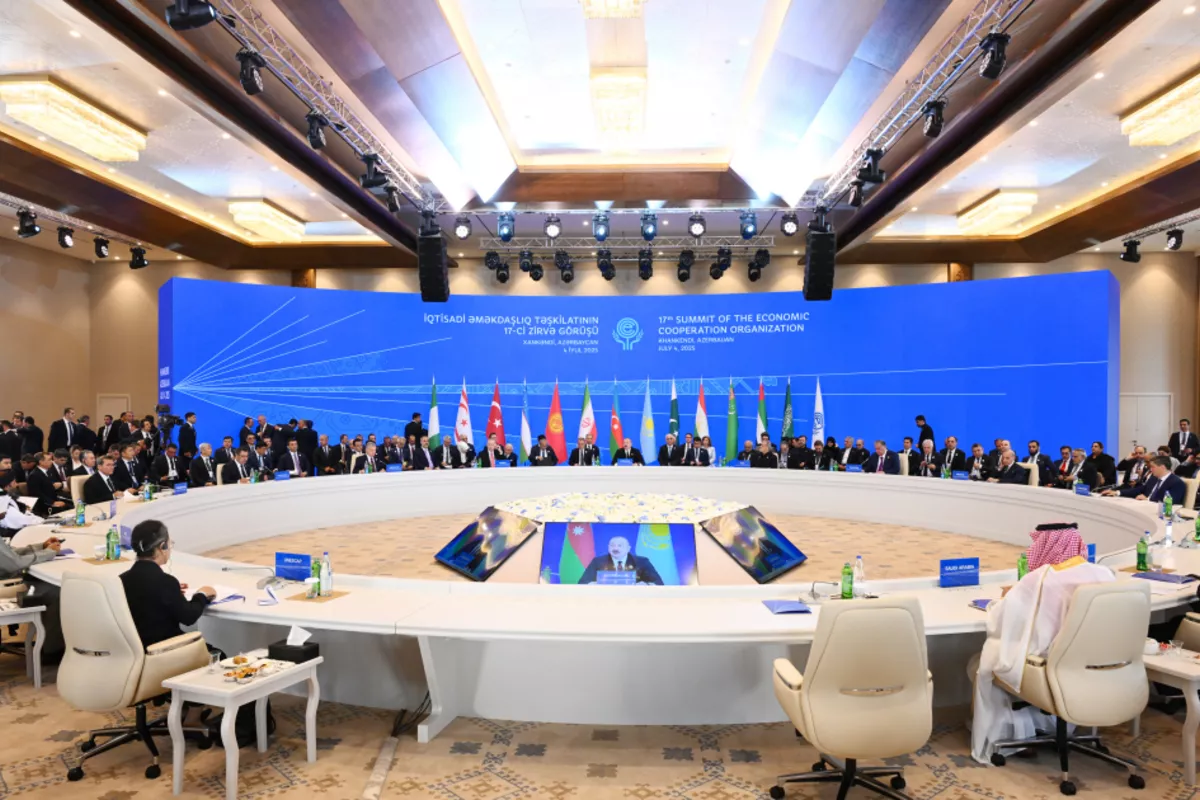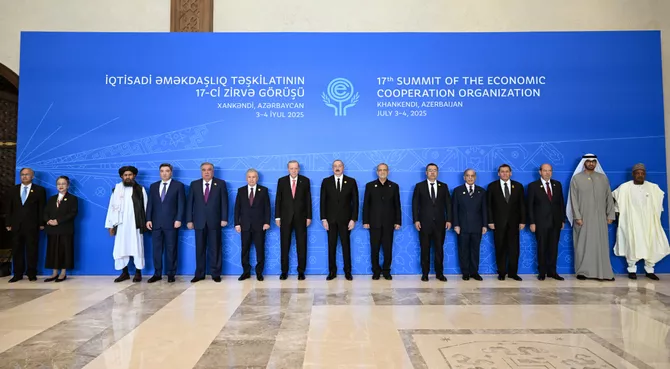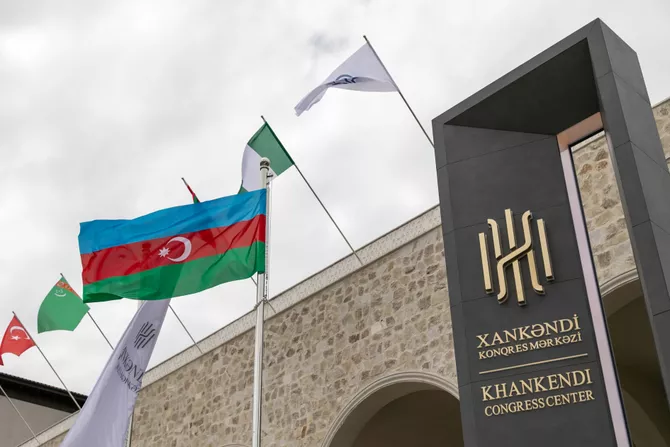
Photo: AZERTAC
The 17th Summit of the Economic Cooperation Organization (ECO), held in Khankendi under the slogan “ECO’s New Vision for a Reliable and Climate-Resilient Future,” garnered significant international attention. This interest was sparked not only by Azerbaijan’s successful organization of another major international event on territories liberated from occupation, but also by the high level of representation at the forum.
Particularly symbolic was the prompt assessment published by China’s Xinhua News Agency. Highlighting the participation of representatives from all 10 ECO member states-Azerbaijan, Türkiye, Iran, Pakistan, Kazakhstan, Uzbekistan, Tajikistan, Kyrgyzstan, Turkmenistan, and Afghanistan-Xinhua drew attention to the summit’s broad agenda, which included expanding trade, combating climate change, developing transport corridors, and strengthening institutional capacity. The agency also emphasized the participants’ renewed commitment to cooperation in energy, science, education, tourism, and inclusive growth. Furthermore, it noted that summit delegates welcomed the ceasefire between Iran and Israel.
In this context, while the address by Azerbaijani President Ilham Aliyev has already been widely covered by the international media, it is important to draw attention to notable remarks made by other participants during the summit.
Armida Salsiah Alisjahbana, UN Under-Secretary-General and Executive Secretary of the United Nations Economic and Social Commission for Asia and the Pacific (ESCAP), thanked Azerbaijan for its efforts in combating climate change and welcomed the hosting of the 17th ECO Summit with a climate-focused agenda, which reflects the organization's vision for 2025.

Photo: AZERTAC
ECO Secretary General Asad Majeed Khan placed particular emphasis on Baku’s role in setting new standards for the organization, aimed at strengthening internal solidarity. He specifically referred to Azerbaijan’s initiative to hold the first-ever ECO Week, which featured the ECO Business Forum in Shusha, the Youth Forum in Aghdam, and the Women’s Forum in Lachin-all hosted on liberated territories. According to Khan, the new benchmarks set by Azerbaijan were a significant step “towards building a family spirit within ECO.”
Uzbekistan’s President Shavkat Mirziyoyev delivered a dynamic and forward-looking speech, calling for the adoption of a concept entitled “Strategic Objectives of Economic Partnership - 2035.” Alongside traditional areas of cooperation, he proposed the inclusion of innovation, artificial intelligence, and digital technologies. He also put forward a long-term “EcoInvest” program and urged the practical implementation of the Digital Transport and Customs Office initiative.
President of Türkiye Recep Tayyip Erdoğan highlighted the importance of developing a dedicated ECO economic and trade strategy. He emphasized the need for joint efforts to exceed the current regional trade target of $100 billion.
Tajikistan’s President Emomali Rahmon underscored that broad and coordinated cooperation within ECO could be effective in addressing contemporary challenges. He noted that trade turnover with ECO countries accounts for a third of Tajikistan’s total foreign trade and is on a growing trajectory. President Rahmon also voiced support for initiatives to establish joint industrial enterprises, promote small and medium-sized businesses, and strengthen collaboration in agriculture, food security, and agritechnologies.
President of the Kyrgyz Republic Sadyr Japarov highlighted the importance of developing renewable energy, improving energy efficiency, and introducing “smart” technologies in agriculture and industry. He elaborated on Kyrgyz initiatives concerning climate, mountain ecosystems, and glaciers, and announced the launch of the international platform “Mountain Youth and Climate.”

Photo: AZERTAC
President of Iran Masoud Pezeshkian advocated for the establishment of a Free Trade Zone among ECO member states.
Pakistani Prime Minister Muhammad Shehbaz Sharif highly praised the efforts of all ECO members to deepen cooperation.
Prime Minister of Kazakhstan Olzhas Bektenov expressed confidence that the summit’s outcomes would provide new momentum for regional partnership.
Deputy Chairman of the Cabinet of Ministers and Foreign Minister of Turkmenistan Rashid Meredov stressed the importance of creating a mechanism for coordinating the energy policies of ECO member states to ensure reliable energy supplies and strengthen regional energy security. He also called for enhanced direct contacts between business communities, including cooperation between chambers of commerce and industry.
Deputy Prime Minister of Afghanistan Abdul Ghani Baradar expressed satisfaction that the summit would help expand regional cooperation, mutual understanding, and progress.
All of the above clearly demonstrates the comprehensive scope of issues discussed in Khankendi. Furthermore, key aspects of global politics were addressed in bilateral meetings on the summit’s sidelines. In doing so, Azerbaijan has once again confirmed its role as a major international platform shaping the essential trends of our time. Against this backdrop, it is worth noting that Baku will host the 82nd session of the Economic and Social Commission for Asia and the Pacific in April 2026, under the slogan: “Leave No One Behind, Build an Inclusive Society.”
This once again underscores Azerbaijan’s consistent rise as a global hub for sustainable development initiatives, inclusivity, and regional leadership. Far beyond serving as a venue for dialogue, Baku is becoming a focal point for consolidating regional ambitions and setting the course for future cooperation across Eurasia and beyond.
Share on social media